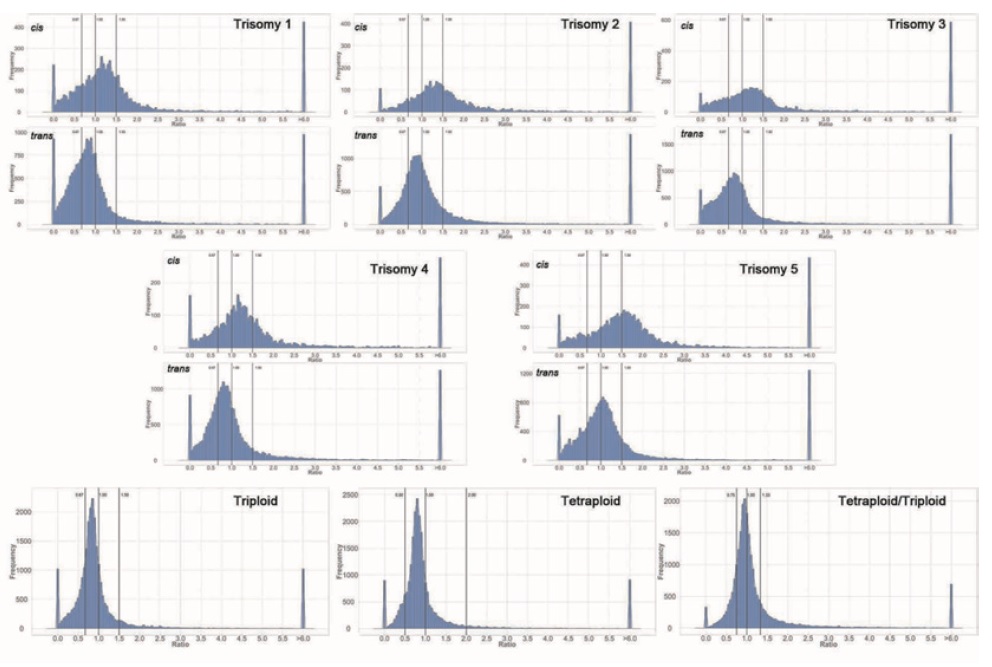Global Impacts of Chromosomal Imbalance on Gene Expression in Arabidopsis and Other Taxa
Jie Hou, Xiaowen Shi, Chen Chen, Soliman Islam, Adam F. Johnson, Tatsuo Kanno, Bruno Huettel, Ming-Ren Yen, Fei-Man Hsu, Tieming Ji, Pao-Yang Chen, Marjori Matzke*, Antonius J.M. Matzke*, Jianlin Cheng, and James A. Birchler
Changes in dosage of part of the genome (aneuploidy) have long been known to produce much more severe phenotypic consequences than changes in the number of whole genomes (ploidy). To examine the basis of these differences, global gene expression in mature leaf tissue for all five trisomics and in diploids, triploids, and tetraploids of Arabidopsis thaliana was studied. The trisomics displayed a greater spread of expression modulation than the ploidy series. Genomewide DNA methylation was found to shift most prominently with trisomy 4 but otherwise exhibited little change, indicating that genetic imbalance is generally mechanistically unrelated to DNA methylation. Reanalysis of disomic yeast and trisomic mouse cells detected similar stoichiometric effects across broad phylogenetic taxa, and indicated that these effects reflect normal gene regulatory processes. Overall, the results indicate an impact of genomic stoichiometry on the landscape of gene expression, which has implications for how gene expression operates, the evolution of duplicate genes, the underlying basis of quantitative traits, and deranged expression patterns in human solid tumor cells, which are usually highly aneuploid. Our results represent the first analysis of transcriptome and methylome of all trisomics in any organism.
Proceedings of the National Academy of Science of the United States of America 115 (2018): E11321-E11330.
DOI: 10.1073/pnas.1807796115